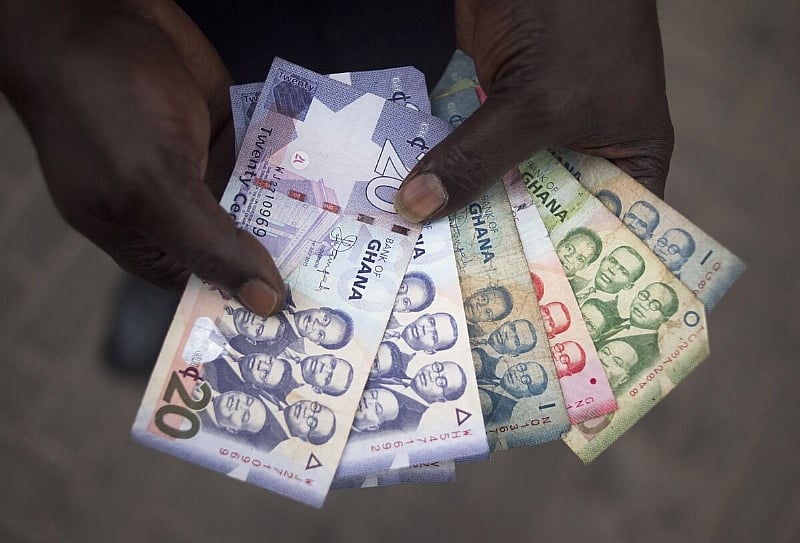The Ghanaian Cedi’s Performance Against Major Currencies: A Detailed Analysis
The Ghanaian cedi experienced a slight depreciation against the US dollar on Tuesday, January 21, 2025, continuing a trend of volatility in the currency market. According to Cedirates.com, a reliable source for currency information in Ghana, the buying rate for the dollar stood at GHS14.96, while the selling rate reached GHS15.41. This represents a marginal decline of 2 pesewas compared to the previous day’s averages. This fluctuation reflects the ongoing challenges faced by the cedi in maintaining its value against the stronger US dollar, a common issue for many emerging market currencies. The depreciation can be attributed to a multitude of factors, including global economic conditions, domestic fiscal policies, and market sentiment.
The forex bureaus, which play a significant role in the Ghanaian foreign exchange landscape, offered slightly less favorable rates compared to the interbank market. Individuals seeking to exchange cedis for dollars at these bureaus faced a rate of GHS15.70, while those converting dollars to cedis received a rate of GHS16.20. This difference in rates between the interbank market and forex bureaus is a standard market phenomenon, reflecting the operational costs and profit margins of the bureau businesses. It highlights the importance of comparing rates from different sources before conducting currency exchanges.
The interbank market, where financial institutions trade currencies amongst themselves, presented a slightly more advantageous exchange rate. The cedi traded at GHS14.99 against the dollar for those selling cedis and GHS15.01 for those buying dollars. This relatively tighter spread between buying and selling rates in the interbank market compared to forex bureaus underscores the wholesale nature of this market segment. Larger transaction volumes and lower overhead costs contribute to this narrower margin.
The cedi’s performance against other major currencies, such as the British Pound and the Euro, also experienced fluctuations. The average exchange rate for converting cedis to pounds stood at GHS18.20, while converting pounds to cedis fetched a rate of GHS18.85. Similarly, the Euro traded at GHS15.30 for those exchanging cedis for euros and GHS15.96 for those exchanging euros for cedis. These variations in exchange rates reflect the complex interplay of economic factors influencing the relative values of these currencies in the global market.
The Bank of Ghana, the country’s central bank, reported slightly different interbank rates for the Pound and the Euro. The selling rate for the Pound was quoted at GHS18.45, while the Euro was selling at GHS15.61. These discrepancies in rates between different sources emphasize the dynamic nature of the forex market and the importance of consulting multiple reliable sources for accurate information. The Bank of Ghana’s rates typically represent the official benchmark rates for the interbank market.
Money transfer services, which offer a convenient and often cost-effective way to send and receive money internationally, provided their own exchange rates. LemFi and Afriex, two popular money transfer operators, offered rates of GHS14.90 and GHS15.00 per dollar, respectively, for transfers from the US or the UK to Ghana. For transactions involving the British Pound, LemFi offered a rate of GHS18.23, while Afriex offered GHS19.41 for converting cedis to pounds. For the Euro, Afriex’s rate stood at GHS15.63, and LemFi offered GHS15.35. These varying rates reflect the different business models and operational costs associated with each money transfer platform.
For online subscription services like Netflix, Spotify, and Apple Music, the exchange rates offered by Visa and Mastercard for renewing subscriptions differed slightly. Visa offered a rate of GHS16.05 per US dollar, while Mastercard offered GHS16.10. These rates are generally determined by the payment processors and can fluctuate based on market conditions and their own internal pricing policies. The small difference between the two providers reflects the competitive nature of the payment processing industry.
This comprehensive overview of the Ghanaian cedi’s performance against major currencies highlights the complexities and nuances of the foreign exchange market. The varying rates across different platforms and providers underscore the importance of diligent research and comparison shopping before conducting any currency exchange transactions. Understanding these dynamics allows individuals and businesses to make informed decisions about their international financial activities.














